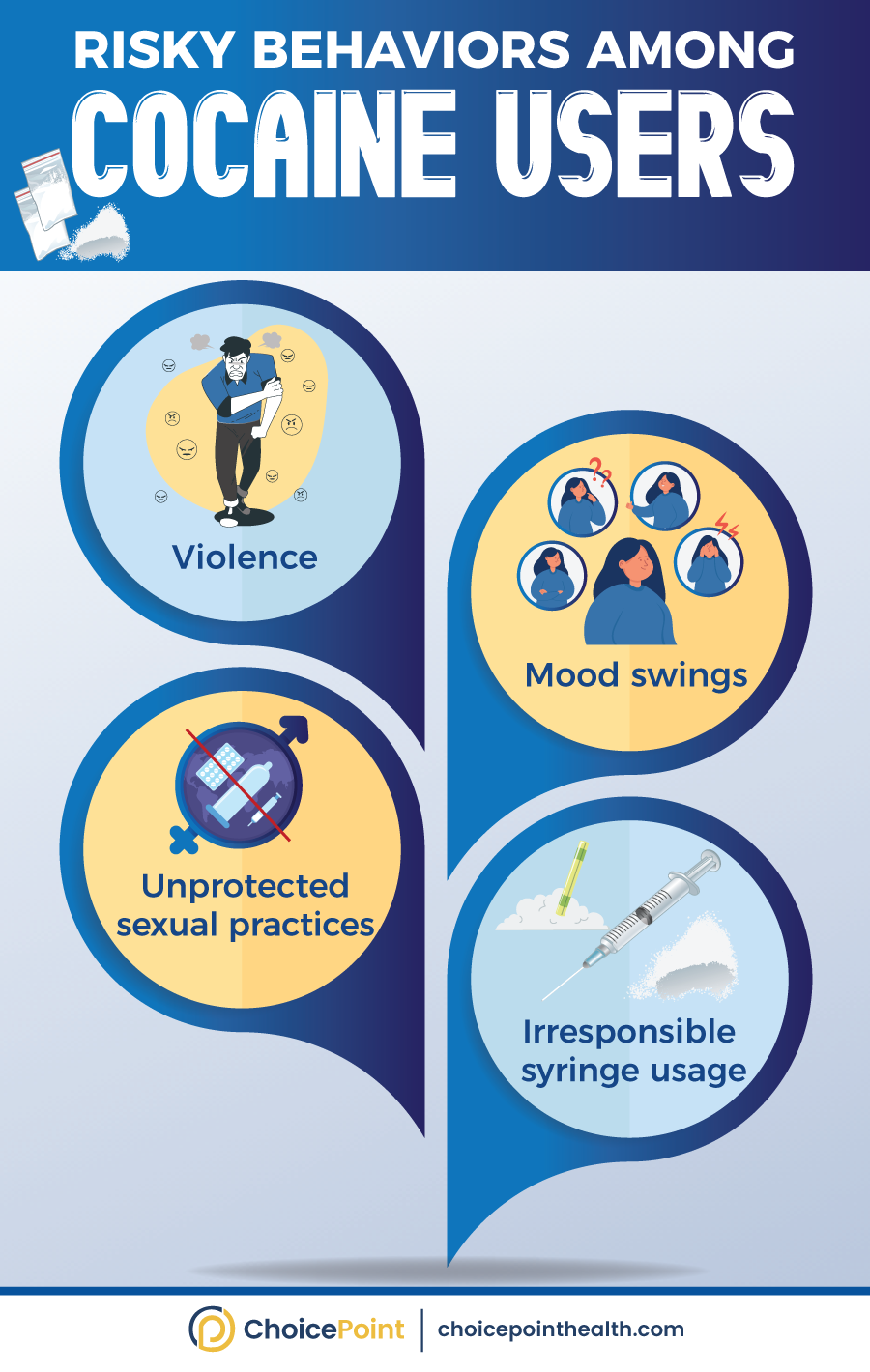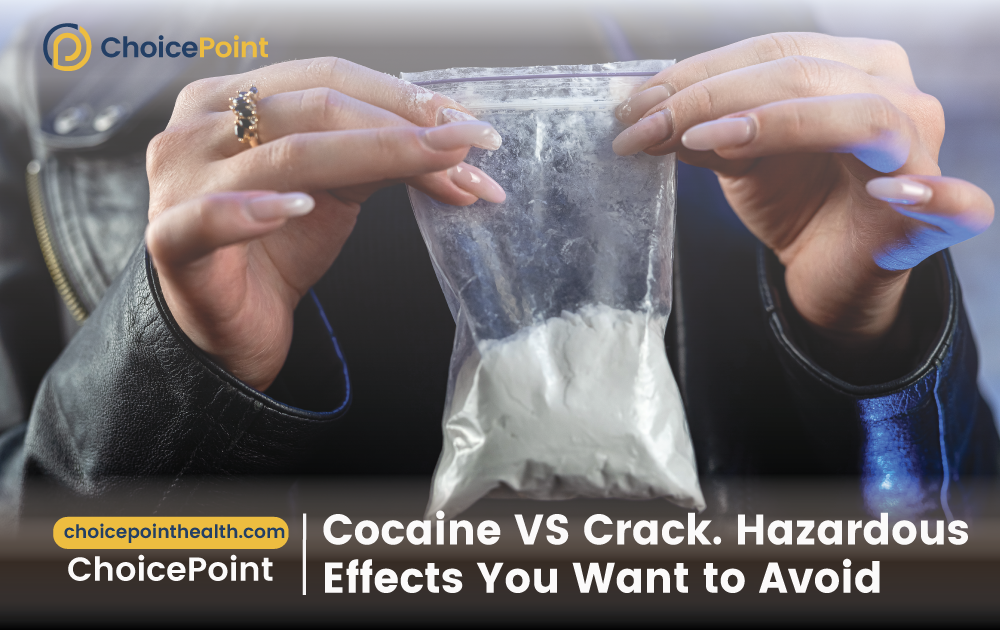You must have heard about coke, Big C, or crack from some of your acquaintances. While it may seem harmless, it’s a very powerful psychostimulant. Crack is just a crystal version of cocaine. A study concluded that cocaine can cause sudden death in people who have undiagnosed heart problems. This article discusses cocaine vs crack and how the two different forms affect a person. Keep reading this article to find out.
Table of Contents
Cocaine vs Crack: Truth About Fatal Stimulant
While cocaine vs crack cocaine is the same with respect to composition, there are some differences in the:
- Forms
- Uses
It is important to remember that cocaine and crack, essentially the same, are very potent and mind-altering substances.
No matter which forms you are addicted to, cocaine is still hazardous, and treatment is imperative because untreated addiction issues can lead to a cocaine overdose. Contact our DEA-certified doctors at 844.445.2563 or fill out this form.
Difference Between Cocaine and Crack: Forms and Uses
Generally, when somebody pronounces cocaine or coke, they are referring to the powdered form of the drug. Crack cocaine is the one which is available in the form of crystal
The following are some of the differences between cocaine vs. crack:
- Powdered cocaine is usually placed in a line and snorted at once nasally.
- Crack coke is available as rock or crystal
- The crystals are melted and then smoked
Cocaine vs Crack: Using Crack
Crack is a purer form of cocaine and helps get instant euphoria, which is why this gained popularity. However, here are some of the facts about rock cocaine:
- The crystal’s euphoria is very short-lived
- The feelings brought by crack are very intense
- The high will last only for a few minutes
- Individuals tend to repeat its use
NOTE: This text is written only for informational purposes.

Outcomes of Cocaine Overdose
Cocaine vs Crack: Using Cocaine Powder
Cocaine powder can be used in different ways that, include:
- Rubbing powder on the gums
- Inhaling in nasally
- Dissolving with water and injecting within the body
- Mixing with other substances to achieve more high
Powdered cocaine is usually used intravenously, which brings about the same high as smoking crack cocaine but is not long-lasting. The risk of cocaine overdose increases in such situations because a person will try to take more and more of the drug.
Shooting cocaine in your bloodstream can be dangerous and highly unsafe. Being high and careless can result in developing viruses like AIDS. Contact us now at 844.445.2563 to undergo professional help. You may fill out the form.
Cocaine and Crack Cocaine Effects
Powder cocaine and crack cocaine are both equally destructive. Being the same, they offer similar cocaine side effects.
Adverse Mental Effects
Cocaine enters the most integral part of your brain, i.e., the central nervous system. This part is responsible for many important cognitive functions. The drug in question can disrupt your normal functions, completely dictating your life for as long as you take the drug. A long-term cocaine user may develop the following mental health issues:
- Permanent Depression
- Violent behaviors
- Psychosis and hallucination
- Paranoia
- Behavior changes
Addiction is a mental disease. Talk to our healthcare professionals to get addiction treatment at our rehab in New Jersey. You may also visit us online, as we are available state-wide in Montana.
Long Term Cocaine Use: Effects on Physical Health
Long term cocaine use can result in multiple physical health issues. It also depends on the way that cocaine is administered. Below are some of the conditions that can develop through specific cocaine administration ways:
A. Rubbing Cocaine on Gums
Patients who use cocaine for an extended period can almost always develop dental issues such as:
- Oral tissue damage
- Palatal perforation (holes in the mouth palate)
- Teeth grinding
The sad part is that most people do not even seek help for their conditions, which can predispose them to several painful conditions. It can become difficult to diagnose and improve if not treated at the right time.

Cocaine Increases Risky Behaviors
B. The Shooting of Cocaine vs Crack
Cocaine and crack, when shot up in the bloodstream via injections, increase the risk of:
- Overdose
- HIV, i.e., AIDS
- Irregular heart beating
All the conditions mentioned above are severe to the point of being deadly. HIV currently has no cure. It is better to protect yourself from this vice.
Cocaine treatment is available at our rehab in New Jersey. Call us at 844.445.2563 or fill out this form to help your loved one fight addiction.
C. Snorting Cocaine
Snorting cocaine means administering cocaine through the nasal pathway. Studies show that this practice can result in:
- Hole in the wall inside the nose
- Skin tissue death
- Lung inflammation
All these studies indicate that cocaine is NOT free of long-term side effects, necessitating seeking help.
D. Smoking Crack Cocaïne Effects
Smoking crack is not a safe way of intaking cocaine. It can also result in dire consequences. Researchers have theorized that smoking crack can be responsible for the following:
- Tuberculosis
- Making individuals more prone to other diseases
For those wondering, “Can you be addicted to cocaine if used casually” the answer is yes. Other than long-term effects, there are short-term effects of cocaine as well.
Short-Term Effects of Cocaine
Cocaine and crack provide a short-lived euphoria but can affect the body badly, even if used briefly. After the intense feelings wear off, a person is likely to experience negative feelings:
- Sadness and anxiousness
- Blistered lips
- Seizures
- Paranoia
- Behavioral issues
- Loss of appetite
- Disturbed sleep
Let’s not undermine the use of cocaine vs crack. Both forms are equally dangerous for a person.
Cocaine vs Crack: Takeaway
The key point of the topic of cocaine vs crack is that these are two different forms of the same drug, so they are equally destructive. Despite how much cocaine is glamorized, it should be avoided. However, if you have developed an addiction to it, it is important to take necessary precautions, i.e., seeking addiction treatment.
Medical Disclaimer:
ChoicePoint aims to improve the quality of life for people struggling with substance use disorder and mental health issues. Our team of licensed medical professionals research, edit and review the content before publishing. However, this information is not intended to be a substitute for professional medical advice, diagnosis, or treatment. For medical advice please consult your physicians or ChoicePoint's qualified staff.










Review Cocaine VS Crack; Hazardous Effects You Want to Avoid.